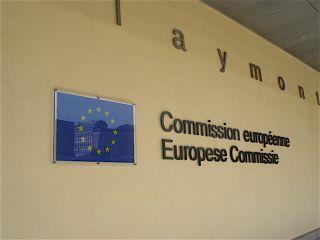by
Leire Ariz*
Four to five years ago too, the European Union was encouraging its citizens to pay attention to all the relevant EU issues, and to figure out a way to reduce the so-called democratic deficit. Today, people care – but not in the way we had hoped.
What has gone wrong?
In the past, the main threat to the development of European identity stemmed from the obstinacy of the so-called Eurosceptics. Europe, it seemed, was beloved by the so-called Europeanists — that is, everyone else. Those on the political right found that Europe’s newfound potential to have a consolidated market appealed to them; those on the left were moved by the idea of their fragmented continent evolving into some sort of internationalist dream. Perhaps most importantly, the EU was an idea that people on both the left and right could get behind because of the values it stood for: human rights, democracy, freedom, equality, and unity. While the institutions of the EU were still under construction, it was easy for all Europeanists from very different backgrounds and ideas to see the potential of Europe as their own potential.
Now that the building process is in an advanced stage, the ideas have begun to be implemented, leaving many of the previous Europeanists disappointed. In this case, the once-expected definition and materialization of Europe have resulted in a decrease of the people supporting it. While some may argue that the EU is an unfinished project, that there is still potential for everyone's ideas, there is an increasing feeling among many that the core values of the EU are being put aside. They are the disappointed Europeanists: the new threat to European identity.
Examples of this crisis of confidence can be found all around the continent. Perhaps most obviously, consider Greece’s cancellation of the referendum on EU rescue aid for Greece. Had this referendum taken place, markets would have been shaken even before the world knew the outcome of the vote; if the Greeks had unequivocally rejected the referendum, the outcome may well have plunged Europe into economic chaos. Needless to say, it is understandable that the referendum was called off. But was this the correct course of action in the long run? Why do political leaders fear their people’s ability to take charge of their own future, instead of providing them the tools to do it? Is disrespecting the will of the people a healthy trend for democracy? Should the legitimacy of a people’s government and its decisions not be derived from the people themselves?
If financial stability trumped democratic legitimacy in Greece, speed and efficiency are what beat out democracy in Italy. The fact that the new Prime Minister was not backed by the people and was simply appointed by President Napolitano is hardly reassuring, and indeed a frightening trend. While there is no doubt he is a legitimate leader, the sense of urgency and need for a new head of state in Italy became more important than its democratic traditions.
In Spain, more disappointment abounds. One of the few EU member-state where a transition of power occurred completely democratically, the country had previously amended its Constitution to put a ceiling on public deficit. This measure was praised by experts, but also criticized by those who noted that only a national sense of urgency had incited the first-ever change to the rigid Spanish constitution. Whereas a referendum is traditionally desired to corroborate serious political change, the dire situation Spain found itself in was enough to get the amendment pushed through in about ten minutes.
The aforementioned examples indicate that the European Union may be slowly leaving behind the ideals that gave birth to the institution itself and increasing the democratic deficit. Ignoring the will of the citizenry is contrary to the core values of the EU; its tradition of pluralism is the main source of its strength. If the EU does not alter its trajectory, we may soon find that the EU has evolved into a kind of Illustrated Despotism, where “everything is done for the people, but without the people”.
*
Leire Ariz is the Media Officer at ThinkYoung, a Brussels based think tank working to promote the youth's interests in the EU institutions.
From Eurosceptics to disappointed Europeanists
Four or five years ago, nearly every European Union official was looking to make national newspaper headlines. Today, the EU is a fixture on the front page — but not in a way we expected.

While some may argue that the EU is an unfinished project, that there is still potential for everyone′s ideas, there is an increasing feeling among many that the core values of the EU are being put aside. They are the disappointed Europeanists: the new threat to European identity.



 By: N. Peter Kramer
By: N. Peter Kramer

